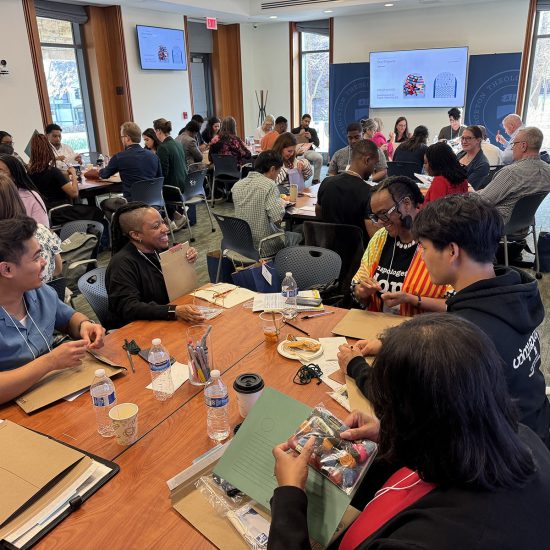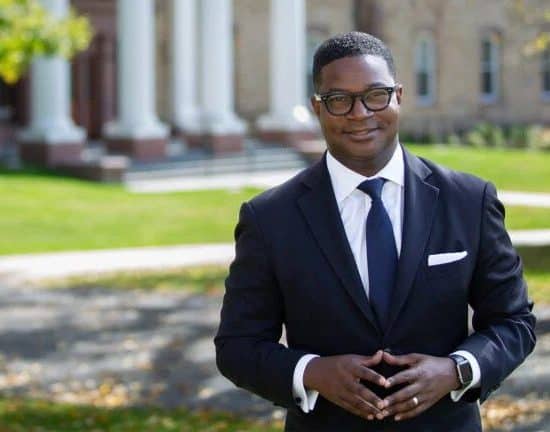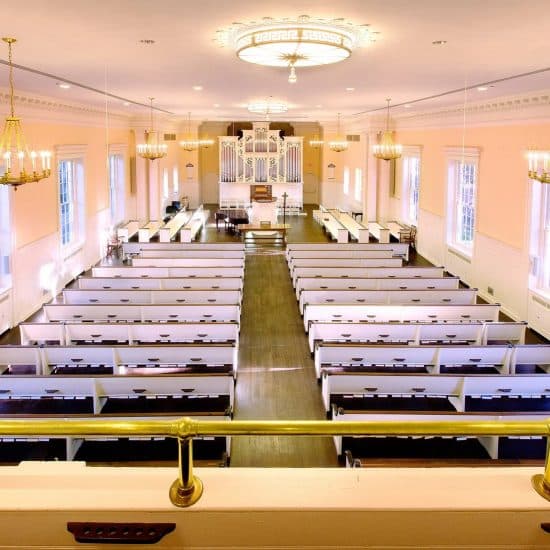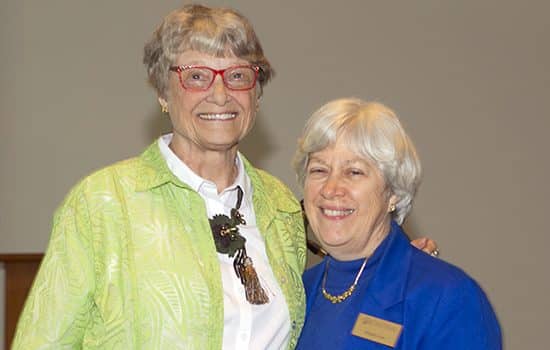SHAWNEE, Kan. — Students and faculty at Central Baptist Theological Seminary will have a lot to celebrate on Jan. 1 –- the fifth anniversary of Molly Marshall’s presidency of the 108-year-old institution.
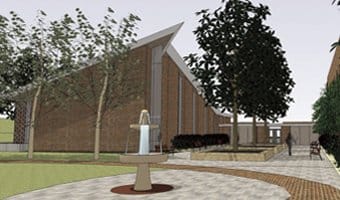
This architectural drawing depicts what will be a walkway between new Central Baptist Theological Seminary buildings, including the Baugh-Marshall Chapel.
|
Since Marshall took the helm, the seminary has turned around — from facing financial ruin to expanding its facilities. Central has moved to a new location, begun new programs, received two major monetary gifts and broken ground for a new chapel since Jan. 1, 2005.
“We were nearly at a point of closing the doors,” Marshall explained in a recent interview. “We had to make hard decisions on property and personnel. It was painful but necessary for sustainability.”
She credits trustees for their insight and nerve, the ability to recognize issues and the courage to make the changes required to keep Central functional and ministry-oriented.
“The board knew they needed someone with ‘trust capital’ here. [She had been a Central professor for nine years.] No one knew how radical some of the decisions were that had to be made,” she said. “I think the board had a lot of confidence in me…. I felt very much that I had been called to this role.”
Marshall added that she had had no personal ambition or desire to become a seminary president. But she “wanted to do what was right for this institution,” she said.
“The board recognized that if we didn’t focus on our compelling mission, there was no point in staying in business,” she said. “The board has moved nimbly” to make the required changes, she added. The “hardest” decision they had to make was to reduce both faculty and support staff by a third.
Leaving the campus that had been the institution’s home in the heart of Kansas City, Kan., for 82 years rated second on the tough-decision meter, the president said. Put up for sale in March 2006, parts of the old campus have finally sold.
Then trustees turned to curriculum and programming changes. Recognizing that Central needed to make its curriculum more accessible, the seminary shifted to include several evening and weekend options. Leaders developed four satellite campuses to reach a broader student body. Two of the original — Milwaukee, Wisc., and Murfreesboro, Tenn. — remain part of the Central family. The school also has increased its online course offerings.
To attract younger students, Central recently began its CREATE program. “We felt there should be new ways to offer theological education to attract younger, creative, out-of-the-box thinkers who might not have come to a seminary offering education in a traditional way,” Marshall said.
Churches face challenging times right now, she added. “The emerging church needs new leaders. It requires creative, skilled problem-solvers and leaders.”
The seminary also is working on a doctor of ministry degree program with a concentration on congregational health, with plans to launch next fall. At its November meeting, the board approved developing a center for women in church leadership.
New ministry projects attract new students and donor dollars, Marshall said. Two years ago, Central began its Urban Core Initiative to teach students to be more missionally appropriate and to minister through class. And about 18 months ago, church planter Wallace Smith joined the faculty and started a new work that meets on campus. The church will officially launch after the first of the year.
Last year, Central began a new partnership with Myanmar Institute of Theology, which includes exchanging students and professors for work at both schools.
Keenly aware that change and growth requires dollars, Marshall has devoted considerable time to fundraising efforts. “I’ve learned to love fundraising because I get to see people at their best,” she said.
Those efforts have paid off in two sizable gifts. The largest gift in the institution’s history came last year when funds from the sale of Des Peres Baptist Church, St. Louis, were distributed. The American Baptist Churches USA-affiliated congregation disbanded in December 2006. The $2.2 million Central received endowed a chair in congregational health, established a resource center in the seminary library and set up an initiative for ministerial preparation for students from St. Louis.
A recent $2 million gift from the John and Eula Mae Baugh Foundation of San Antonio, Texas, will fund the Baugh-Marshal Chapel. The seminary broke ground for the facility on Sept. 11.
Marshall acknowledges that she has fun as president, too, and draws satisfaction from it. “It’s been personally satisfying to help a school renew its mission, to provide very good theological education and to prepare good congregational leaders,” she said.
She added that she is “appreciative of friends among Missouri Baptists” and wants Central to “be the seminary for this region.”

